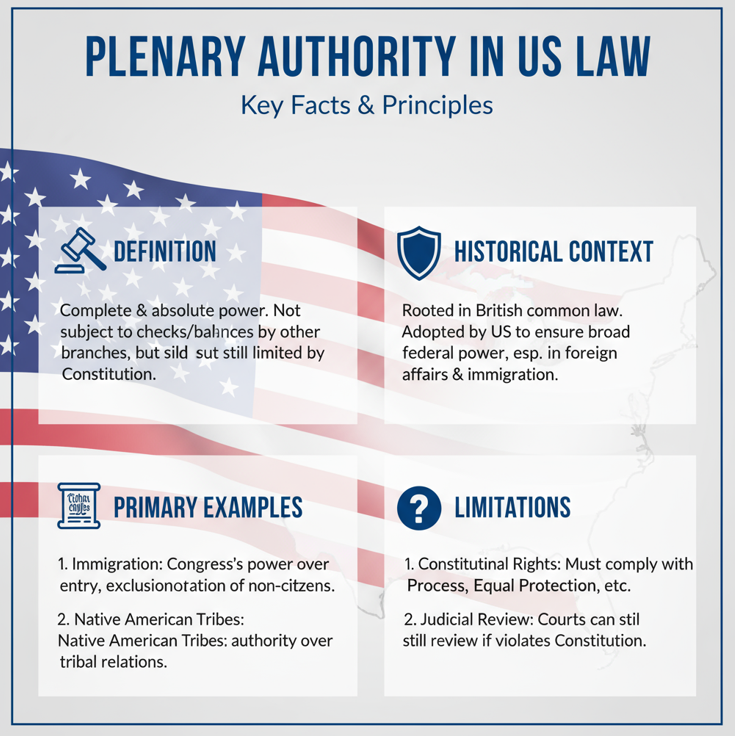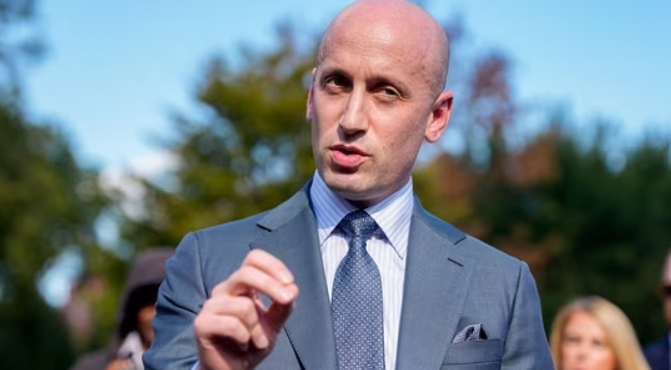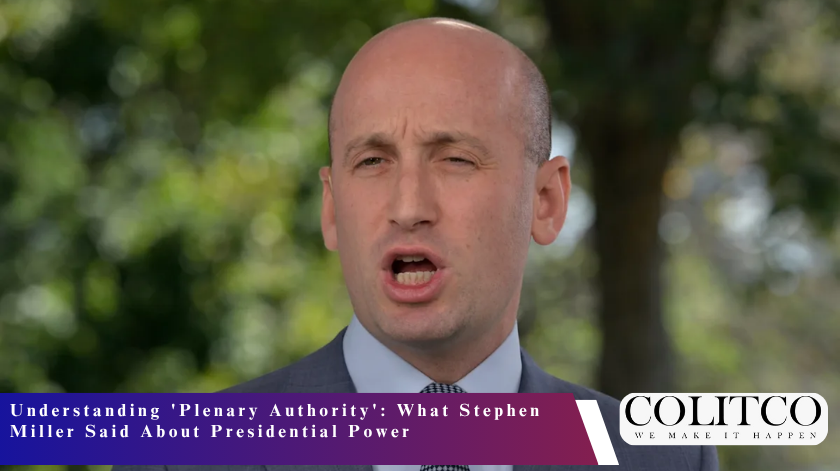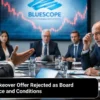President Trump’s adviser Stephen Miller referred to the president’s “plenary authority” during a recent CNN interview. Miller spoke about this in the context of deploying the National Guard to Oregon. The phrase drew significant attention and sparked debate about the extent of presidential power in the United States.
What is Plenary Authority?
Plenary authority means complete and unrestricted power over a specific area. In legal terms, it implies full power to act without requiring approval from other government branches or bodies. According to the Cornell Law School’s Legal Information Institute, plenary authority is defined as “complete power over a particular area with no limitations.”
The term is often used to describe powers granted by the Constitution or federal law, limited only by those frameworks. Plenary authority covers specific subjects, such as the deployment of the National Guard under Title 10 of the U.S. Code. However, the use of the phrase suggests a level of power beyond usual checks and balances.

Key facts about Plenary Authority in US law
Context of Stephen Miller’s Statement
During a live CNN interview, Miller discussed the Trump administration’s attempt to deploy National Guard troops to Oregon. Miller claimed that the president had “plenary authority” over this decision. He said, “Well, the administration filed an appeal this morning with the Ninth Circuit. I would note the administration won an identical case in the Ninth Circuit just a few months ago with respect to federalising the California National Guard under Title 10 of the U.S. Code. The president has plenary authority…” Miller cut off mid-sentence, which added to the controversy.
At that point, Miller froze on camera for about 15 seconds before the feed was cut. CNN cited a technical issue, but some suggested the pause was deliberate. The moment went viral and raised questions about presidential powers and constitutional limits.

Stephen Miller speaks to members of the media outside the White House in Washington, DC
Implications of the Claim
Miller’s use of “plenary authority” implies an absolute, unchecked power. This contradicts the U.S. constitutional principle of separation of powers. The American system divides authority among the executive, legislative, and judicial branches to prevent any single official from wielding total control.
Though the president has broad authority, especially as commander-in-chief of the armed forces, courts and Congress retain the power to check executive actions. Courts have barred the deployment of National Guard troops in some cases, showing limits on presidential discretion.
Legal Perspective on Presidential Powers
Plenary power is more commonly associated with Congress than the presidency. For example, Congress holds plenary power over immigration, allowing it to create immigration laws with limited judicial interference. The president’s role, however, is bound by constitutional checks and balances.
Title 10 of the U.S. Code authorises the president to federalise National Guard troops in certain situations, a power relevant to Miller’s statement. Nevertheless, this authority is subject to judicial review and legislative constraints.
Public Reaction and Political Debate
Miller’s assertion triggered controversy, with many legal experts and commentators debating the validity of the claim. Some argued Miller exaggerated the president’s power. Others viewed the statement as a potential political overreach.
The moment also sparked scrutiny of the Trump administration’s actions in Oregon, where courts blocked the National Guard deployment. The move raised alarms over the balance of power and respect for judicial decisions.
Also Read: The Insurrection Act: How a Historic Law Empowers Presidential Action
Broader Significance
Miller’s statement shed light on ongoing tensions about executive authority in the United States. The controversy arises amid legal disputes over the limits of presidential control, particularly regarding military deployment and civil rights.
The incident highlights the importance of constitutional mechanisms that regulate the exercise of power. It also raises questions about political rhetoric versus constitutional reality in explaining presidential powers.
Summary
Stephen Miller, President Trump’s adviser, cited the president’s “plenary authority” during a discussion about National Guard deployment. Plenary authority means full, unrestricted power in a particular area, but in the U.S., this power is always subject to constitutional limits. The claim sparked debate as it conflicts with the principle of separated powers that limits any branch or official from holding unchecked authority. Miller’s comment caused controversy especially since he abruptly stopped mid-statement during a live interview, attracting global attention to the issue of presidential powers and their limits under U.S. law.
This discussion unfolds as the Trump administration faces legal challenges over military deployments and executive authority. The concept of plenary authority serves as a reminder of ongoing debates about the proper scope of presidential power in democratic governance.












